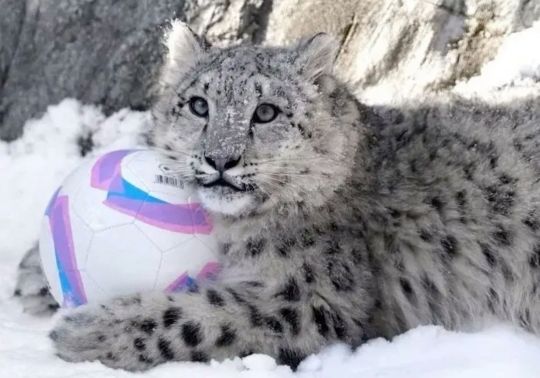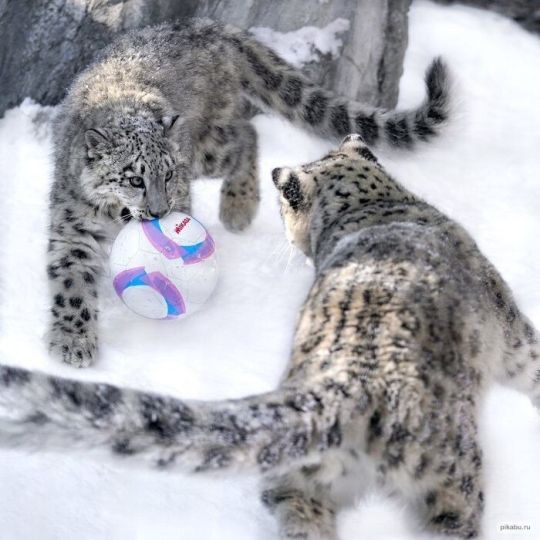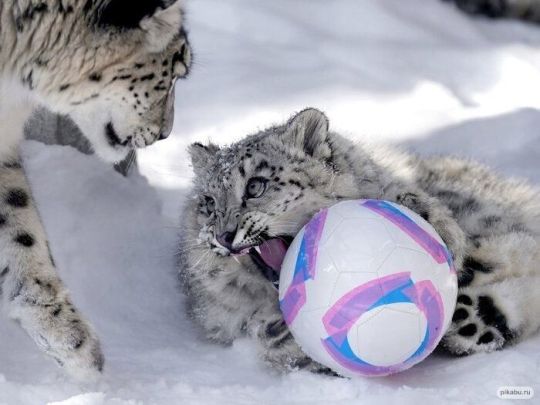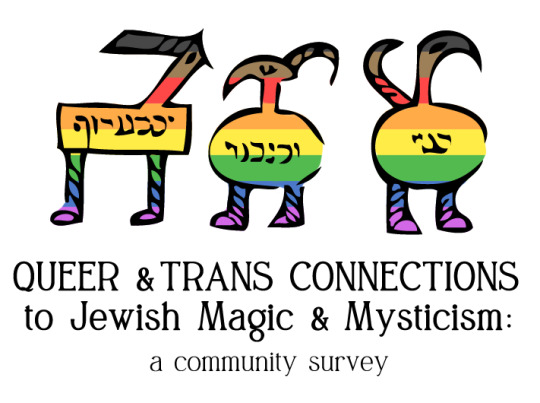#transkeit
Explore tagged Tumblr posts
Text



trans pride snow leopard
Come And Take It!
2K notes
·
View notes
Link
hello again friends! i’m excited to share that my artwork “Feygele” & an accompanying poem from my chapbook - together a queer, trans love letter to Jewish demons - is representing the month of Tammuz in the Radical Jewish Calendar for 5781!
as a contributing artist, i was allowed to choose a date in the calendar to mark in a way that felt important to me, so i chose to commemorate the August 3rd co-founding of this blog (and resulting community!) with the amazing @darkhei-noam in 2016. i can barely believe that this blog is 4+ years old - and our Discord server for LGBTQ+ Jews who study and/or practice Jewish magic & mysticism is 2+ years old and more active than ever with 80+ members (if you want an invite, message us)!
i am so grateful to each & every person who has been active here, and i’m especially thankful for @creekfiend & @kuttithevangu who together were a major guiding light on my way back into Judaism through the more marginal & magic aspects of our history. getting to know them & so many more incredible people through them changed my life.
which is a long way to say that “Queerkeit Coven” is printed in a calendar now & all of you should feel proud!
<3 Ezra
#queerkeit#radical jewish calendar#radical jewish calendar 5781#jewish art#sheydim#transkeit#blog anniversary#ezra's posts#shana tova
34 notes
·
View notes
Text
My friend Rabbi Emily is such an amazing person. She has orthodox smicha (she transitioned after obtaining it).
As far as trans Halacha is concerned, she says the largest issue is that we need to be more engaged. The world needs more trans rabbis, especially trans women. We are the only ones who fully understand our situation, and thus are the only ones who can properly Paskin Halacha regarding the subject. In addition, there is more to tackle besides for the halachot of getting our testes removed. There’s a lot more with what do we do in our daily lives. The emphasis MUST be on social transition and not medical transition, because its no ones business whether we’ve had surgery or not.
And to say to the people “whatever, just abandon tradition instead of all this headache for halachic answers”, that is a disservice to those who want to follow tradition. It leaves them out in the cold and it is an unacceptable conclusion that the only way we can be trans and Jewish is to be forced into movements we don’t necessarily theologically agree with.
Additionally, Halacha for trans men is different than that for trans women, if you’re going traditional enough to require mechitzah.
In the queer world outside of trans, there are more halachic issues to be addressed that simple haven’t been, and that is a damn shame. Halachically, does the concept of a mechitzah break down once you introduce nonbinary, fluidity, and such? Hell, does it break down the moment you introduce gay, lesbian, and bi? What about shomer negiah, which is based in both who you are attracted to and who is attracted to you?
These cannot simply be shrugged off as “well, Jews that are queer wouldn’t want to observe anyway because of how hostile observant jews often are”. THAT reasoning only serves to push us out and disconnect us more.
Edit: I see how my wording above might imply that nonbinary, GQ, fluidity and such are not trans. This is not so, they definitely are trans and/or trans-spec. Having once identified as NB myself, I did not intend to exclude groups beyond binary. My phrasing "in the queer world outside of trans" was oriented toward talking about gay/les/bi/poly/pan/ace stuff, a whole different dimension of discussion that much of the religious works hasn't even begun to talk about.
48 notes
·
View notes
Link
Learn more about the conference here (it’s soon!): https://clgs.org/event-items/transkeit-affirming-gender-diversity-for-jews-and-allies/
Featuring a performance of “The Rabbi and His New Skirt” by Reb Irwin Keller
Presenters:
Rabbi Reuben Zellman, Congregation Beth El, Berkeley
Reb Irwin Keller, Spiritual Leader Congregation Ner Shalom, formerly “Winnie” of the Kinsey Sicks
Rabbah Rona Matlow, Disabled Veteran and Community Activist
Noach Dzmura, Author/Editor of BALANCING ON THE MECHITZAH
Martin Rawlings Fein, Filmmaker, CHOOSING TO BE CHOSEN
Rabbah Emily Aviva Kapor, Transhalacha Project
Greyson Vega, Pacific School of Religion
Kelsey Pacha, Youth Organizer & M.Div Candidate
Talia Johnson, Kohenet Priestess Institute
Dr. Abi Weissman, Clinical Psychologist
Zami Tinashe Hyemingway, Transgender Health Service, SF Dept. of Health
Rabbi Susan Goldberg, Rabbinic Consultant TRANSPARENT
Duncan McCullough, Jewish Trans Guy from the Deep South named McCullough
#LGBTQ Jews#Trans Jews#Transgender#Queer Jews#Transkeit#Berkeley#california#Pacific School of Religion#Irwin Keller#Rabbah Rona Matlow#Noach Dzmura#Martin Rawlings Fein#Emily Aviva Kapor#Kelsey Pacha#Talia Johnson#Dr. Abi Weissman#zami tinashe hyemingway#rabbi susan goldberg#Duncan McCullough
9 notes
·
View notes
Text



writing @deadhorsepress
comics @aesopandfables
#zeke.txt#zeke.png#zeke.ask#images of me#judaism#interart#aes#quips#heals 2 hp#for the pen#life#good words#discworld#transkeit#fave#snepard#disco elysium#medieval#little rams#dark brandon beam attack#jokes to show people at the library#tes#jerma#icons#dungeon meshi#comics#patron saint of depression#2percent gallery#écosse#tweets
43 notes
·
View notes
Text

are you Jewish, LGBTQ+, AND interested in the study and/or practice of Jewish magic & mysticism? we want to hear from you!
https://forms.gle/AvyVo3979zXNbaaRA
mod Ezra here - as you know, this community & the intersection of topics that brought us together is near & dear to my heart, so it’s been a goal of mine to try to understand that connection better in order to collect/create more resources specifically for us! this survey, which is mostly open-ended short written response, was created as a tool to help get bigger conversations rolling & collect some data for us to think about. there’s more info at the link about how the information will potentially be used/shared, but in short - it’s up to you if you want to be totally anonymous or if you want to be cited and/or interviewed at more length.
i’ve got a couple of related projects in the works & possibly some opportunities for where this might go - right now i’m mostly interested in gathering info & keeping it open. please share widely & don’t hesitate to reach out if you have any questions or concerns about the survey!
[image: three small bird-like angels that protect against Lilith, from a diagram in the Book of Raziel, colored with the black & brown striped rainbow flag]
315 notes
·
View notes
Link
something i put together pretty quick for Poetry Jam; February 2020 but i’m fairly proud of it! a condensation of lots of thoughts/feelings i’ve been having about queer/trans Judaism & Jewish myth/magic/mysticism, with a side of trauma processing (nothing queerer or more Jewish, etc.)
totally free, .txt version available for folks with screen readers. much love to you all! - Ezra
68 notes
·
View notes
Link
237 notes
·
View notes
Photo



Rabbi Danya Ruttenberg on angels being canonically non-binary & the Jewish legal use of this status in a historic trans rights case!
(original thread)
#jewish history#transkeit#transgender jews#angels#nonbinary#transgender#talmud#rabbi danya ruttenberg#ezra's posts
2K notes
·
View notes
Link
a nice article on gender-neutral language for aliyot!
i know a few of us have experienced being called up with “na l’amod” (a gender-neutral “please rise” rather than the binary gendered “ya’amod” or “ta’amod”) and use “mi’beit” (“of the house of”) rather than “bar” or “bat” in our Hebrew names - it’s great to see more communities taking this step to be inclusive!
156 notes
·
View notes
Text
a queer & trans Jewish perspective on names (notes for a zine)
hello friends! i’m starting to put together sources & thoughts for an upcoming comic zine i’m doing called “True Names” that brings together my perspectives on (self-)naming as a queer, trans, witchy Jew - i just finished the excellent Magic of the Ordinary by Gershon Winkler & thought i’d share some relevant quotes & thoughts with you all:
“...no name can hold within it that which is infinite. God, Judaism teaches, is un-name-able, un-peg-able, un-define-able, because not only is God infinite but also dynamic, eluding all attempts to attain a snapshot of a moment or essence of what is God. Therefore, when Moses asked the Creator to divulge the God Name, the Creator's response was אֶהְיֶה אֲשֶׁר אֶהְיֶה (ehyeh asher ehyeh), which translates simultaneously: 'I was what I was, I am what I am, and I will be what I will be':
You wish to know my name? According to my actions I am called. At times I am called el shadai, or tz'vaot, or elo-heem. When I judge the creations, I am called elo-heem; when I battle wrongness, I am called tz'vaot; when I suspend the sins of humanity, I am called el shadai; and when I exercise compassion upon my worlds, I am called yhvh. In other words, I was what I was, I am what I am, and I will be what I will be—according to the nature of my actions I am called. (p.35)
this strikes some major chords with me re: labeling and queerness - existing in flux or outside of conventional definitions/structures, struggling to find words for that or to make existing words fit - and also the idea of a name as describing an action really resonates with me. Winkler expands on that idea when paraphrasing Rabbi Chayyim of Volozhin:
...that which is comprehended somewhat by us, and we decorate this grasping with various God-Names and Divine Attributes and the like—as we find in our Scriptures and in the various forms of our prayers—reflect only God’s relationship with the universes...even [in invoking] the essential, singular Name itself we are not connecting with the Selfhood-Essence of God but with that aspect of the Blessing Source that is in relationship with the universes... (p. 36)
in this view, a name describes not who you are essentially (what could possibly describe that?) but rather who you are to the world, especially who you are to the world in this moment:
This explains the baffling response which the Hebrew ancestor Ya’akov receives from the spirit being with whom he wrestles, after asking it to divulge its name to him: “Why do you ask me for my name?”—about which the second-century Rabbi Abba Arecha comments in the name of Rabbi Yosei bar Dowstai: “The angels have many names, according to their calling [in the moment]...[Said the angel to Ya’akov] ‘I am puzzled [that you ask me my name] for I do not know what my name is changing into in this very moment!” (p. 36, emphasis mine)
i imagine you can see where i’m going with this in relationship to changing names as a trans person - if a name is connected to an action or calling, choosing a new name for yourself is the process of describing what (& how) you do in the world right now, which may be different from what you did in the past or what others expected you to do. there are of course trans folks who don’t change their names (for many reasons), but for those of us who do, we’re responding to the sense that our birth names don’t (or never did) describe us accurately. the concept of a “deadname” becomes that which is no longer active - a thing we just aren’t doing anymore, and for a lot of people, being addressed by that name sounds like a request to perform that action again when at best we’ve moved on, and at worst, that action hurt us! we’re doing something else now, something more true to our present understanding of ourselves. we’re in a new relationship with the world and our birth names are an old relationship that has ended.
the essential me, including my gender, can’t be contained in any of my names, and none of those names (in my opinion) are more cosmically real or necessarily permanent than any other - the idea of a magical “true name” is something i want to push back against, and historical Jewish magic backs me up on that with the incantation bowl phrase “and every name [a person] has”
but my chosen name is powerful because i’m describing me right now, which is really the most important thing since we exist in the present! for me it’s not even a new name - in my case, i’ve been holding onto my chosen name in the back of my mind since i was a child, but have only been able to claim it openly as an adult in the past few years. something about it has clicked with me for that long & it’s a relief to finally be able to use it. other folks are still looking for names that fit, some folks feel good about their birth names! only you get to define the relationship/calling of your name, given or chosen.
if multiple names/labels and an outright refusal to be defined by others is good enough for the divine, it’s good enough for us - b’tzelem elohim!
#jewish magic#jewish history#gershon winkler#magic of the ordinary#queerkeit#transkeit#names#ezra's posts#long post
325 notes
·
View notes
Link
remember those Jewish forest spirits from the beginning of the year? so excited to finally be able to share their story - which is also about a queer, non-binary Jew finding refuge in magic & the woods (plus celebrating both Sukkot & Tu B’Shevat!)
you can even see part of our comic animated (!!!) in the gorgeous video created for this Kickstarter, along with many other beautiful pieces. we’re humbled & honored to be among the rest of these fantastic creators & so excited for the book to come out - please signal boost & consider backing, this is truly a one-of-a-kind, first-of-its-kind book!
<3 Ezra
66 notes
·
View notes
Link
I would like to offer you the slide show that was presented by Rabbah Rona on the first day of the conference. It's primary objective is to provide a basis for us to push back against people saying we're sinners or that Judaism will not accept us. It does so by providing some basic halachic and historical background into certain things that are trans-relevant. I caution you, it can get graphic.
15 notes
·
View notes
Text
I'm at a conference for trans Jews at the moment, and I heard a great story just now. My friend, Rabbi Emily, was part of the bait din for a transman who was converting. The other people involved in the ceremony were also trans. To their knowledge, this was the first and only all-trans conversion ceremonial dunking and bait din affirmation. I am so happy I came to this conference. More knowledge coming.
148 notes
·
View notes
Note
Hi, thanks so much for this blog, I love it!!! Quick question, any idea/references for queer vocab in Hebrew? I've been looking everywhere but I can't find anything 😔 thanks in advance!
you’re so welcome!
i (Ezra) am unfortunately not myself a Hebrew speaker, so any information i have is secondhand, but i did just read an interesting essay called “Dancing on the Needle’s Edge: Gay Lingo in an Israeli Disco” by Liora Moriel (in a book called Speaking in Queer Tongues: Globalization and Gay Language) on the use of queer English vocabulary in the LGBTQ+ community in Israel.
part of the preference for English over Hebrew seems to be related to the perceived “genderless” quality of English - in Hebrew, not only are nouns and pronouns gendered, but even verbs come in male and female forms, so it’s pretty much impossible to avoid gendering yourself or another person in speech. there is pushback and creativity around this from the Hebrew-speaking queer & trans community worldwide, including the awesome new gender-neutral singular “ol” and plural “imot”, but in terms of identity words, i can’t find much that’s not English (except for very derogatory Hebrew slang terms, and i have no way of knowing if these have ever been reclaimed).
according to Moriel, in the early 90s the word “geh/geh’ah” (גאה), which sounds like “gay” but literally means “proud man/woman,” was proposed as a Hebrew queer identifier and gained some popularity in Israel, but then fell out of use as the community “re-embraced the international words homosexual, les’beet (the female Hebrew form of the gay English “lesbian”), bi (bisexual) and trans (transgender/transexual)” (p. 116 in Speaking in Queer Tongues) - the word “queer” seems to have been added into Hebrew vocabulary as well after it was reclaimed & popularized by English speakers.
she does mention that the concept of gender was originally one word in Hebrew (min) and is now two, gender (mig’dar) and sex (min), but that’s about it - i’d be really interested to hear from Hebrew speakers whether there are other more recent words used by the LGBTQ+ community!
i know folks have in the past few years been reclaiming ancient Hebrew terms for gender diversity and i absolutely love this concept - i find myself wishing that English hadn’t just dominated the conversation in Israel & squashed words like geh/geh’ah (even with the gender binary issue), because i think there’s a lot of power in having culturally specific language. i’d definitely be very interested in a Hebrew queer & trans glossary, and if any Hebrew speakers are up for helping me gather those resources i’m happy to put it together!
21 notes
·
View notes